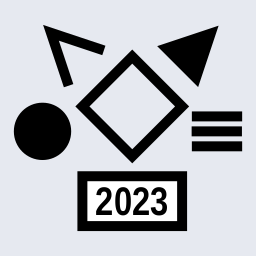About DEC2H
Workshop Theme
Rules and decisions define the behavioural constraints and factors determining the achievement of process goals. Business processes frequently involve rule-bound decisions – particularly knowledge-intensive processes, which operate in highly variable contexts and are thus flexible by nature. When describing such processes, variability and flexibility call for explicit statements of the underlying rules and decisions.
While traditional notations such as
BPMN
excel at describing “happy paths”, they may fall short when modelling flexible and varying rules and decisions, wherein procedural models tend to clutter and become imprecise or impractical. Declarative modelling paradigms
(such as
Declare,
DCR Graphs,
DMN,
CMMN,
GSM,
and
DPIL)
aim to directly capture the business rules or constraints underlying the process and thus tackle this challenge. A promising direction is the hybridisation of procedural and declarative approaches.
In this workshop, we are interested in the application and challenges of decision- and rule-based modelling in all phases of the BPM lifecycle: identification, discovery, analysis, redesign, implementation and monitoring. Contributions are welcome that adopt existing formalisms or introduce novel ones, in the form of completed work (research, case studies and tools) but also work-in-progress and position papers.
Purpose of the workshop
The purpose of the workshop is:
- to examine the relationship between rules, decisions and processes, including models; not only to model the process, but also to model the rules and decisions;
- to enhance rule and decision mining based on process data (e.g., event logs);
- to examine decision goals, structures, and their connection with business processes, in order to find a good integration between rule- and decision-based modelling and flow-based modelling;
- to examine standards (DMN, CMMN, BPMN) and their integration;
- to study how different process models can be designed to fit a decision process, according to various optimization criteria, such as throughput time, use of resources, etc.;
- to study the integration between declarative models with traditional imperative models;
- to show best practices in separating process, rule and decision concerns.
Topics
Topics of interest include, but are not limited to:
Declarative and hybrid (process modelling) approaches
- Declarative notations (Declare, DCR, GSM, eCRG, DPIL, …)
- Decision & goal notations (DMN, PDM, …)
- Case management notations (CMMN, fCM, …)
- Declarative and hybrid modelling methodologies
- Process metrics
- Process maintenance and flexibility
- Human-centered and flexible processes
- Decision rules and processes
- Decision models and structures
- Formal analysis (e.g., expressiveness proofs) of declarative and hybrid notations
- Formal verification (e.g. model-checking and static analysis) of declarative and hybrid models
- Run-time adaptation of declarative and hybrid process models
Decision mining and declarative/hybrid process mining
- Decision mining
- Declarative process mining
- Hybrid process mining
- Data mining for decision and declarative/hybrid process analysis
- Rule mining for decision and declarative/hybrid process analysis
Applications of decision- and rule-modelling in BPM
- Goal-driven processes
- Knowledge-intensive processes
- Business process compliance
- Knowledge workflow management
- Usability and understandability studies
- Case studies
- Tools

